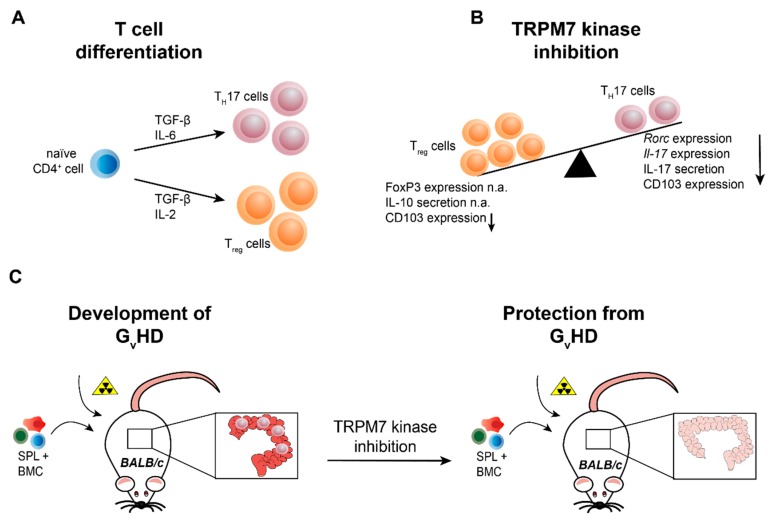Figure 4.
TRPM7 kinase is essential for T cell differentiation into the pro-inflammatory TH17 cell type and the development of graft versus host disease. (A) Naïve CD4+ T cells differentiate into pro-inflammatory TH17 cells in the presence of TGF-β and IL-6. For the differentiation into anti-inflammatory regulatory T cells (Tregs), the cytokines TGF-β and IL-2 are required. (B) Genetic inactivation of TRPM7 kinase activity (Trpm7R/R) results in reduced TH17 cell differentiation, indicated via diminished Rorc and Il-17 mRNA expression as well as IL-17 serum levels, while Treg cell differentiation, evident via FoxP3 expression and IL-10 serum levels, is unaltered. In addition, integrin αE (CD103) expression is reduced in TRPM7 kinase deficient T cells. (C) Transplantation of bone marrow cells (BMC, C57BL/6) in conjunction with splenocytes (SPL, C57BL/6) triggers the development of graft versus host disease (GVHD) in lethally irradiated mice with different genetic background (BALB/c), manifesting in massive tissue destruction of the intestine but also lung and skin tissues. TRPM7 kinase deficient BMC and SPL transplantation does not induce inflammation in the intestine and ameliorates or even prevents disease progression, suggesting TRPM7 kinase inhibition as valid tool for the treatment of GVHD. n.a. (not altered).

